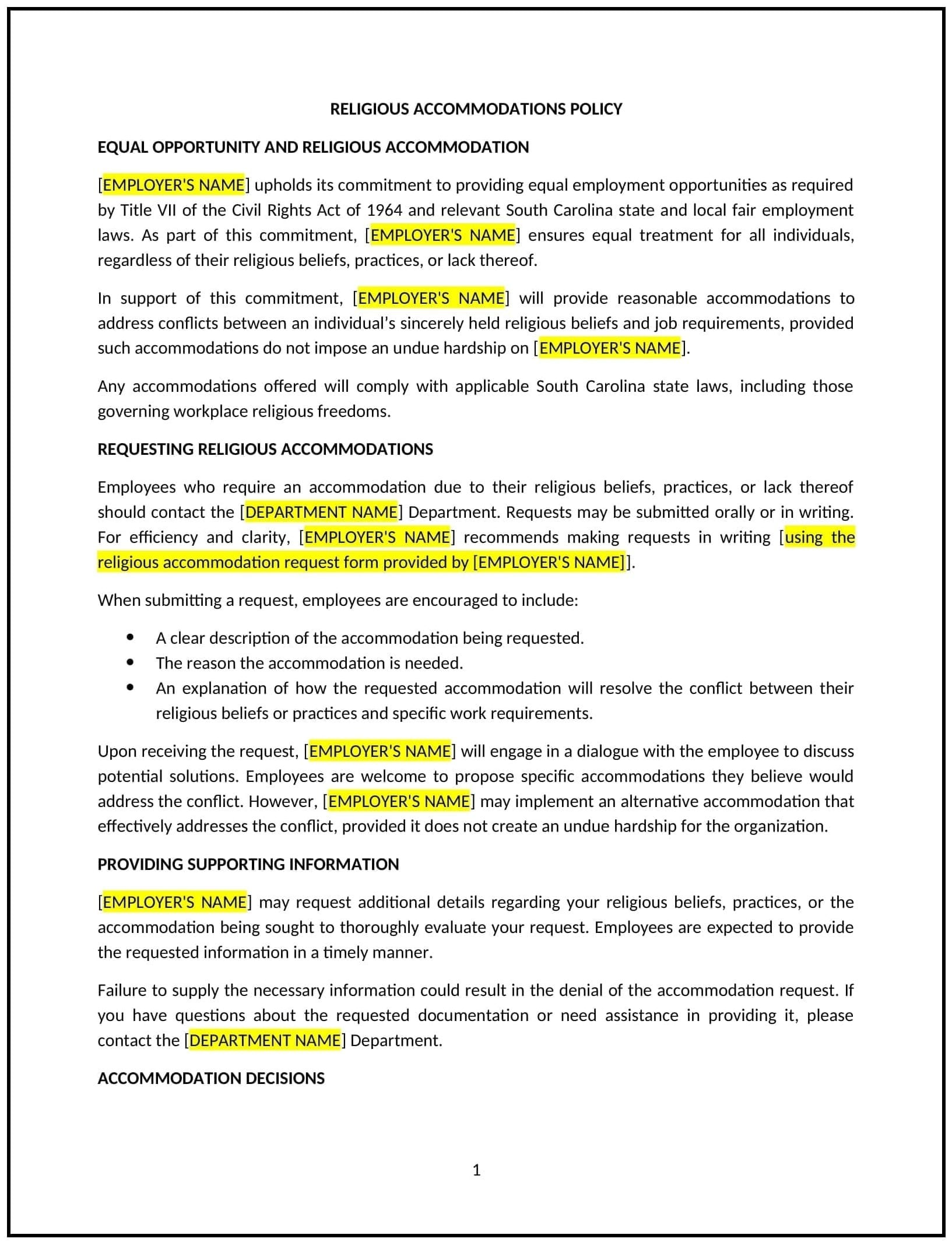Religious accommodations policy (South Carolina): Free template
Got contracts to review? While you're here for policies, let Cobrief make contract review effortless—start your free review now.

Customize this template for free
Religious accommodations policy (South Carolina)
This religious accommodations policy is designed to help South Carolina businesses establish guidelines for accommodating employees’ religious beliefs and practices in the workplace. It outlines procedures for requesting accommodations, evaluating requests, and fostering an inclusive work environment.
By adopting this policy, businesses can support employees’ religious freedoms, promote diversity, and align with general best practices for workplace inclusivity.
How to use this religious accommodations policy (South Carolina)
- Define religious accommodations: Explain what constitutes a religious accommodation, such as flexible scheduling for religious observances or dress code adjustments.
- Establish request procedures: Provide steps for employees to request accommodations, including required notice and documentation.
- Address evaluation processes: Outline how accommodation requests will be evaluated, considering factors such as business needs and feasibility.
- Set communication guidelines: Encourage open dialogue between employees and managers to discuss accommodation needs and solutions.
- Train managers: Educate supervisors on handling accommodation requests respectfully and fairly.
- Review and update: Assess the policy annually to ensure it aligns with evolving business needs and inclusivity standards.
Benefits of using this religious accommodations policy (South Carolina)
This policy offers several advantages for South Carolina businesses:
- Supports religious freedoms: Demonstrates a commitment to accommodating employees’ religious beliefs and practices.
- Promotes inclusivity: Creates a welcoming environment for employees of diverse religious backgrounds.
- Aligns with best practices: Provides a structured approach to managing religious accommodation requests.
- Builds employee trust: Shows employees that the business values their religious and cultural identities.
- Reduces turnover: Encourages employees to stay with the business by fostering a supportive work environment.
Tips for using this religious accommodations policy (South Carolina)
- Communicate the policy: Share the policy with employees and include it in the employee handbook.
- Provide training: Educate managers on handling accommodation requests respectfully and fairly.
- Monitor adherence: Regularly review accommodation requests to ensure they are addressed promptly and fairly.
- Address issues promptly: Take corrective action if accommodation requests are mishandled or denied improperly.
- Update regularly: Assess the policy annually to ensure it aligns with evolving business needs and inclusivity standards.